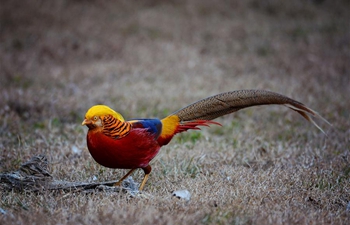LONDON, Jan. 19 (Xinhua) -- The import from the U.S. of Black Friday sales deals has led to change in the Christmas shopping trends of British consumers, a report by the Office for National Statistics (ONS) revealed Friday.
November took over from December as the highest spending month in the last quarter of 2017, said ONS, citing Black Friday as the reason. Retail sales fell by 1.5 percent in December compared with November, a sharper fall than expected.
Black Friday is the name given in the U.S.for the day following Thanksgiving Day which since the 1950s has been regarded as the beginning of the country's Christmas shopping season. The tradition has spread to Britain, with heavy promotions of bargains in the shops.
The Financial Times reported Friday that the growth of the Black Friday event has distorted retail sales figures and cast doubt on the official statistics about a sector that accounts for more than a tenth of the British economy.
The flawed seasonal adjustment means that it was impossible to tell the real state of the British consumer this Christmas, added the FT.
Commenting on the new retail sales figures, ONS senior statistician, Rhian Murphy said: "Retail sales continued to grow in the last three months of the year partly due to Black Friday deals boosting spending. Consumers continue to move Christmas purchases earlier with higher spending in November and lower spending in December than seen in previous years."
"However, the longer-term picture is one of slowing growth, with increased prices squeezing people's spending," said Murphy.
ONS said in the latest three-month period, the quantity bought in retail sales increased by 0.4 percent compared with the previous three months (July to September).
"While the underlying pattern remains one of growth, this is the weakest quarterly growth since the decline of 1.2 percent in Quarter 1 (January to March) 2017," added ONS.
For the whole of 2017, the quantity bought in retail sales in Britain increased by 1.9 percent, the lowest annual growth since 2013, according to ONS.

















